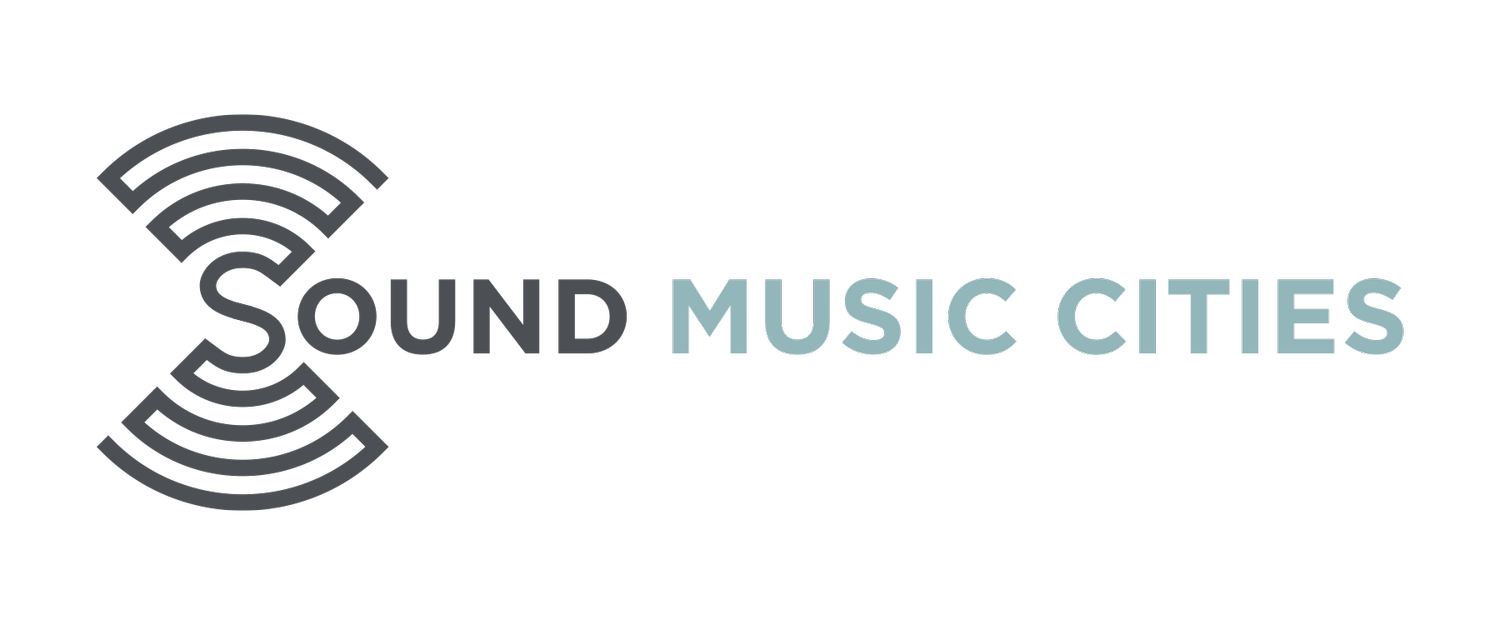Building a Vibrant Music Ecosystem: The Chattanooga Music Census Reveals Key Insights
Chattanooga, a city teeming with musical talent and potential, recently conducted a comprehensive music census to better understand its music community and identify areas for growth and improvement. Chattanooga is the most recent city in the Multi-City Cohort to complete its music census and share its census reports with the community. The survey targeted residents aged 18 and older from the greater Chattanooga metro area, encompassing the City of Chattanooga and several surrounding counties, who were professionally or semi-professionally involved in various music-related fields. The census yielded invaluable data that sheds light on the challenges and opportunities faced by the city's music ecosystem. In this blog, we delve into the key findings from the Chattanooga Music Census and explore the potential for creating a cohesive and thriving music community. See the full set of reports on the Chattanooga Music Census website.
The Chattanooga Music Census enjoyed the highest participation rate in Sound Music Cities’ history with 3.3 responses per 1,000 population.
Gender Inequality and Age Distribution
The census highlighted a gender imbalance within the music community, with 63% of respondents identifying as male and only 31% as female. Although this disparity aligns with trends observed in other cities, it underscores the importance of addressing gender diversity and promoting inclusivity within Chattanooga's music industry. Additionally, the majority of music professionals fell within the 25-54 age bracket, indicating that the industry has a relatively stable workforce. However, the census also revealed limited growth in new entrants and talent, suggesting the need to create pathways for aspiring musicians and industry professionals to enter and thrive in the sector.
The Potential for a Thriving Music Ecosystem
Despite the challenges, Chattanooga boasts all the essential components for a vibrant music ecosystem. To transform this potential into reality, it is vital to foster interdependence and collaboration among various stakeholders. The census outlined specific roles that are crucial to building a robust music community, including champions, connectors, funders, communicators, and civic leaders who advocate for and incentivize the entire ecosystem.
Insights into the Needs of Music Creatives
The census revealed that music creatives, including musicians, bands, songwriters, engineers, teachers, producers, and more, form the largest group within Chattanooga's music community. However, a significant percentage of them rely on income from sources outside of music, making it essential to create more opportunities for full-time music careers.
Key needs of music creatives identified in the census include:
More Gigs: With 75% of their income coming from non-music sources, music creatives seek more opportunities to perform and earn a living from their craft.
More Creative Time: Many creatives desire grants to support their artistic pursuits and enable them to devote more time to their creative endeavors.
Access to Industry Services: Creatives spend a substantial amount on industry services, but a significant portion of this spending goes outside the local community due to limited access to local service providers.
Space for Work: 34% of creatives require suitable spaces to work and create, which can significantly impact their productivity and artistic growth.
Desired Training: To enhance their careers, music creatives expressed interest in training programs focused on marketing/social media, recording engineering, booking promotion/event production, and publishing/licensing.
Boosting Chattanooga's Music Industry
Chattanooga's music industry demonstrates diversity, with numerous sectors represented. While many professionals solely work in music, a considerable proportion struggles to find local industry services, leading to reliance on national providers. To strengthen the industry, the following steps can be taken:
Improve Awareness and Accessibility: Efforts should be made to enhance awareness and ease of finding local industry services, encouraging more collaboration between local providers and music creatives.
Incentivize Local Collaboration: Grant programs could offer incentives for working with local industry providers, boosting the local music economy.
Extend Industry Services: While connecting Chattanooga creatives to local services is essential, there is also an opportunity to expand industry services beyond the city, benefiting both creatives and service providers.
Venues and Presenters: Paving the Way for Music Creatives
Venues and presenters play a critical role in the music ecosystem, creating opportunities for music creatives to showcase their talents. However, these entities face significant challenges, such as struggling business models and uncertainty regarding talent costs and audience interest.
To support Chattanooga's venues and presenters, the following strategies can be implemented:
Access to Grant Funding: Many venues operate as nonprofits, indicating a need for increased access to grant funding to sustain their operations.
Music Business Education: Providing venues with music business education and small business resources can enhance their operational efficiency and financial sustainability.
The 2022 Chattanooga Music Census offers valuable insights into the city's music community, highlighting both its potential and areas that require attention and support. By fostering collaboration among various stakeholders, promoting gender diversity, and addressing the needs of music creatives, industry professionals, and venues, Chattanooga can create a thriving music ecosystem that benefits its residents and enhances the city's cultural and economic landscape. With dedication and cooperation, Chattanooga can undoubtedly establish itself as a thriving music city that resonates with creativity and passion.

